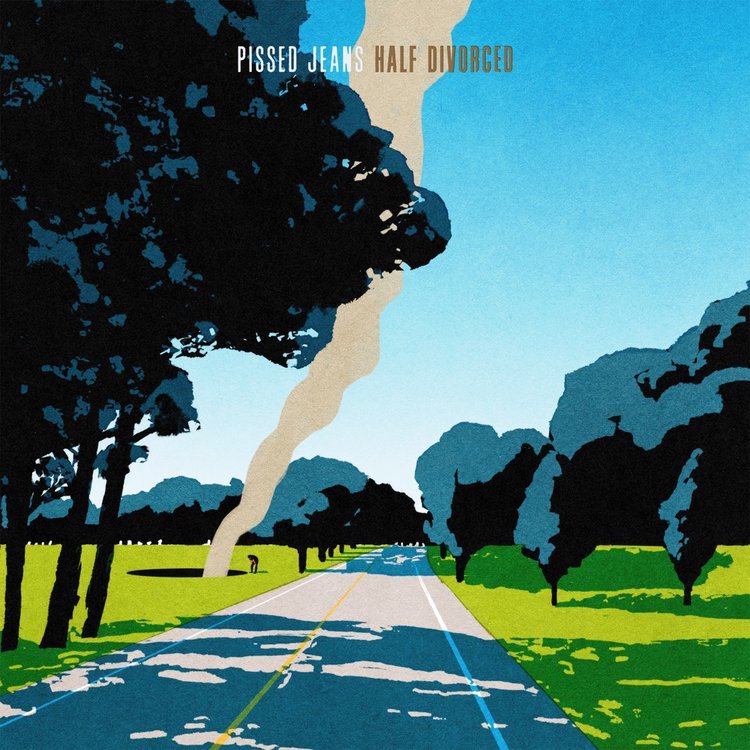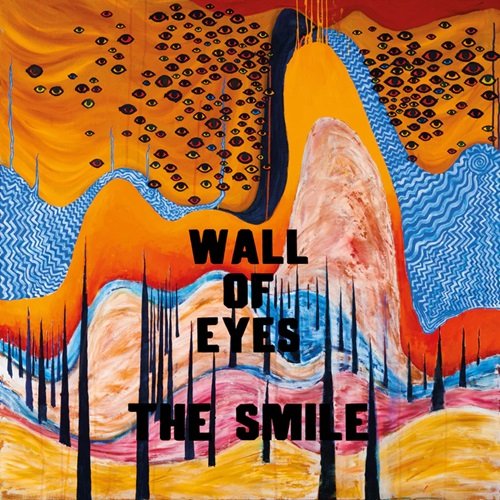black midi - Hellfire
black midi
Hellfire
By: Abigail Vettese
Hellfire feels like an expansion of character; it is the coming together of all their previous works and is full of sonic tact. This is their most interesting and eccentric work yet.
It is not often you encounter a group of musicians who transcend genre so much so that one struggles to outline their style in words.
Malleable, captivating, and ever-transforming, London's maximalist avant-garde, art-rock trio, black midi (stylized in all lowercase letters), do just that, and Hellfire is no exception.
The band consists of Geordie Greep, Morgan Simpson, and Cameron Picton. With a namesake influenced by the cluttered genre Black MIDI, it is not unreasonable to be absolutely overwhelmed by this band's entropic, ataxia-inducing mayhem.
Following their first two albums, Schlagenheim and Cavalcade, Hellfire (produced by the prolific Marta Salogni), is an even more eccentric exploration theatrics and dynamism.
Hellfire arrives as their most frenetic, absurdist, and progressive work yet. One could compare the album's sound to an amalgamation of King Crimson and Primus, a hint of That Fucking Tank, Hella, IDLES, Death Grips, and any other number of noteworthy experimental outfits.
However, once a tinge of familiarity is placed, it is quickly challenged by black midi's ability to seamlessly transition into something entirely their own; innovative and impressive not only because the three-piece are in their mere 20s but also due to the apparent marriage of music theory and improvised chaos.
Photo Cred: Yis Kid
Hellfire was written during the peak of the COVID-19 pandemic and details the antics of what Greep himself refers to as "scumbag characters" navigating pain, loss, and moralistic hardships - vaudevillians with a penchant for debauchery.
Murder, lust, misogyny, and war are at the forefront of this dense 38-minute listen. It feels like several hours of sensory input, but the album is brief considering its heavy content.
Schlagenheim, the band's first full length, feels like a deconstructed version of where the trio has presently landed. Cavalcade took us a step deeper, exploring jazz influences, and Hellfire feels like an expansion of character; it is the coming together of all their previous works and is full of sonic tact. This is their most interesting and eccentric work yet.
Hellfire starts with what feels like a comedic horror film. Its second track, “Sugar/Tzu”, is a jazz fusion standout. Winding down from the first 4 tracks, Still greets us with just that - a respite from a noisy welcome to the album. We are then offered a literal half-time experience before the album's second half navigates from more clutter back to calm. In “Welcome to Hell”, an instant favorite, Greep declares:
"To die for your country does not win a war. To kill for your country is what wins a war."
Upon consuming this collection, one is quickly captured by Greep's peculiar, Satanic vocalizations. His unusually textured and dynamic voice feels out of place yet perfectly layered over sonic insanity. Greep moves away from his abstract and cryptic lyrical tendencies and instead ventures into more literal and dramatic spaces while embracing the acquired taste of his aberrant accent.
Drummer Morgan Simpson and bassist Cameron Picton do not disappoint in their performance, not simply making sound to show off their talents, even though that alone would be entirely acceptable based on their skillsets.
Oh, the terrors of humanity. One can't distinguish whether to laugh at Hellfire's absurdity or be horrified by its accurate depiction of the dystopian reality in which we live.
While all of black midi's albums carry evident political messaging, Hellfire seems to take on a new level of anti-authority, anti-capitalist meaning, especially as it was released post-pandemic peak.
Following black midi from their start in 2017 to now, they have grown into themselves. The embrace of absurdity in Hellfire brings out new confidence from the trio. There is something special about following a band from their humble beginnings and witnessing the exponential growth over a humble few years.
Consuming the creative energy of a band like black midi instills curiosity and wonder.
What could they possibly do next?












